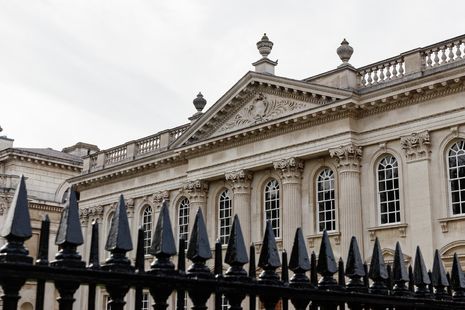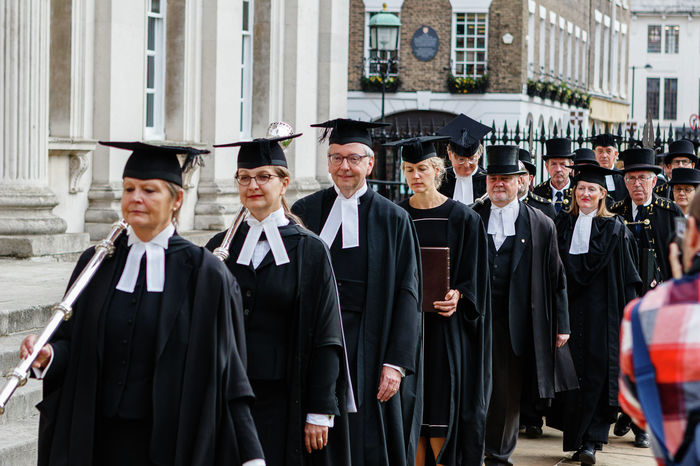Negibile financial impact on University finances due to pandemic with staff reward schemes reinstated
The report describes the suspension of reward and progression schemes for staff as ‘extremely disappointing’

An official report published on 27th January has downplayed the impact of Covid-19 on the University's finances. The report states the “University’s income streams are more robust than previously thought” and “the measurable direct net financial impact on the Chest so far seems to have been more or less negligible". However, the report does not comment on college finances.
Following this, it was announced yesterday (11/02) that the staff reward and progression schemes suspended because of the pandemic will run as normal next year subject to University Council approval. This follows a campaign by the trade union UCU for the schemes to be reinstated.
The report was published by the Board of Scrutiny, a committee of elected academic staff responsible “for ensuring transparency and accountability in all aspects of University operations”.
The document supplements a report published by the Board in November 2020 on the University's central budget, known as the Chest. The Chest, with an income of £516.7 million this academic year, is used to cover “core recurrent costs of the University in teaching, basic research and associated administration”.
The Board of Scrutiny suggests “the University’s Covid‑19 scenario modelling earlier in the year was, in hindsight, excessively pessimistic and did not highlight a scenario which accurately captured what has, in fact, transpired so far”.
The report is highly critical of the decision to suspend “almost all reward and progression schemes”, including the Professorial Pay Review 2020, the Grade 12 Contribution Reward Scheme 2021, the University Senior Lecturer Contribution Reward Scheme 2021 and the Researcher Increment Scheme 2020/21.
These were introduced by the University as a way to reward staff, ensure that their salaries are competitive within the academic labour market and to recognise staff contribution which goes "above and beyond" expectations.
The Board of Scrutiny report notes: “Many staff have had to work exceptionally hard in difficult circumstances throughout 2020 to keep the University’s operations going. Given this, the suspension of almost all reward and progression schemes in 2020–21 is exceptionally disappointing to many, particularly as this was justified, in part, by the pandemic.”
A Cambridge University and College Union (UCU) spokesperson told Varsity: "The report of the Board of Scrutiny makes it really clear: there is no financial rationale for the University to further extend the promotion freeze. As the impact of Covid-19 on the chest allocation has been negligible, we also believe that the University should lift the Recruitment Protocol which has increased workload for both teaching and administrative staff.”
They noted: “The Higher Education sector was already understaffed before the pandemic, and UCU members went on strike for 20 days last year over issues including workload. Last summer, the University froze promotions and imposed a recruitment protocol to protect its finances against the potential adverse impact of Covid-19.
“Now that we know University finances are healthier than forecast, staff cannot continue paying for a tragedy that did not occur: the University needs to lift both the promotion freeze and the recruitment protocol”.
Despite the limited financial impact of the pandemic, members of the Board are concerned about the “well-documented structural deficit” in the Chest, and, in the Council’s October report on allocations from the Chest, propose the refinement of several initiatives in order to generate income proposed.
Nevertheless, the report of the Board of Scrutiny is clear that the “endless hollowing out of the salaries and benefits of rank‑and‑file University employees” is “not sustainable” as a strategy of resolving the structural deficit in the long term.
The October report of the Council criticised “some institutions” within the University, claiming they have “been unable to scale back activity to live within their means”.
In response, the Council identified several ‘Category 1 initiatives’, which aim to cut £9.3 million in University spending immediately. Savings included the suspension of funds used by departments to purchase equipment, as well as “pay and non-pay savings” in the University’s Unified Administrative Service (UAS).
The October report nonetheless noted that “austerity measures in recent years” prevent institutions from going “very much further” with cuts “without significant detriment to the University’s academic potential”.
The Library Syndicate, a committee which supervises the management of the University Library and affiliated libraries, in particular “cautioned against arbitrary cuts to Chest expenditure on material to support current research and educational needs”, according to the October report.
As a result, “over thirty” ‘Category 2 initiatives’, described as based “predominantly on the generation of income” have been identified across the University.
The October report did not give details of the projects, but proposals include “new or expanded postgraduate taught, executive education and other taught courses”, as well as changing “unregulated fees”.
Reviewing the initiatives, the Board of Scrutiny states that it “cannot form a view as to their likely success” because “no detail is provided about the potential scale of either cost savings or additional income that might be delivered by these initiatives”.
Responding to the conclusions of the Board of Scrutiny, a University spokesperson told Varsity: “The net financial impact on the University appears broadly neutral in results for the financial year to July 2020 because it only captures the first few months of the pandemic.
“Significant uncertainties remain over the outcome of the full Coronavirus pandemic on University finances, which were already supporting an operating deficit in the Academic University with investment income.”
The spokesperson added: “Collegiate Cambridge will come out of the pandemic with reserves materially depleted from pre-Covid projections in spite of the prudent scenario planning that continues to evolve with each new phase.”
 News / Clare Hall spent over £500k opposing busway 24 December 2025
News / Clare Hall spent over £500k opposing busway 24 December 2025 Comment / The ‘class’ of Cambridge24 December 2025
Comment / The ‘class’ of Cambridge24 December 2025 News / Caius mourns its tree-mendous loss23 December 2025
News / Caius mourns its tree-mendous loss23 December 2025 Comment / Yes, I’m brown – but I have more important things to say22 December 2025
Comment / Yes, I’m brown – but I have more important things to say22 December 2025 News / Girton JCR publishes open letter expressing solidarity with Palestine25 December 2025
News / Girton JCR publishes open letter expressing solidarity with Palestine25 December 2025










